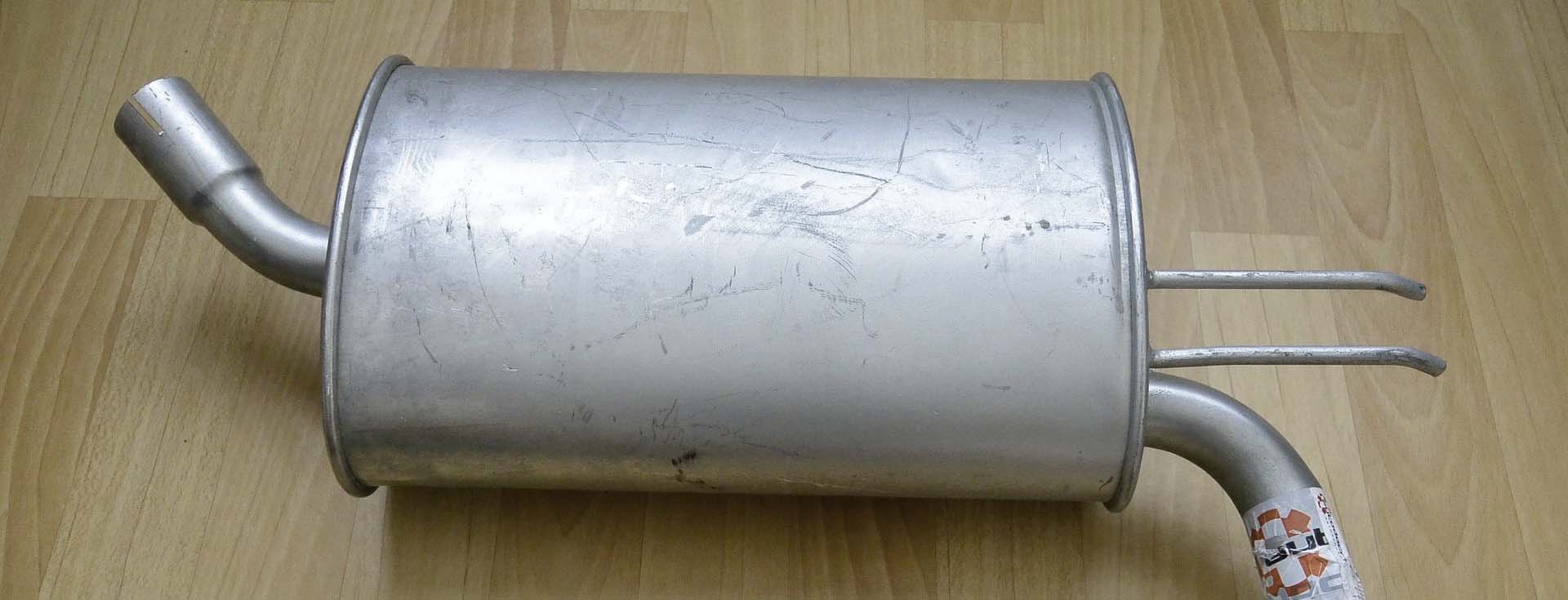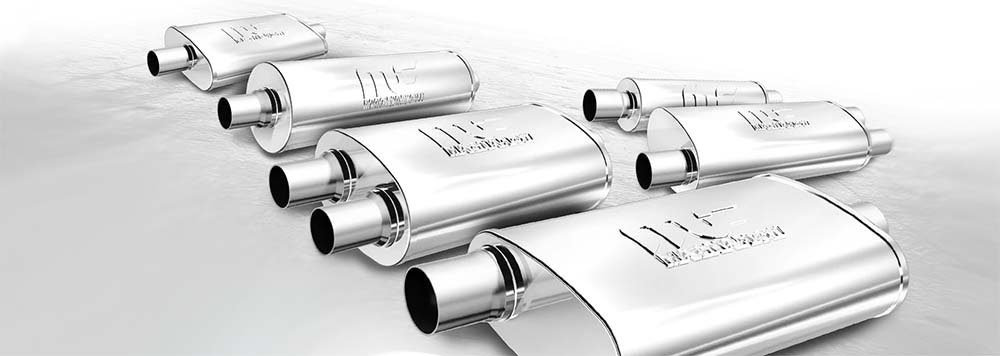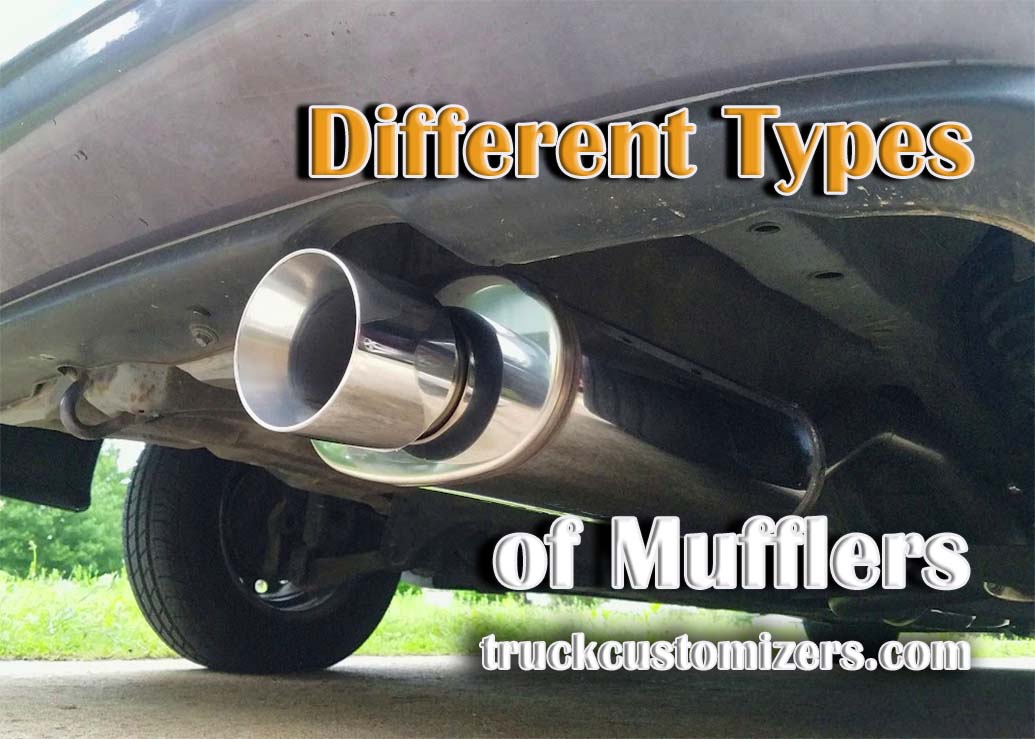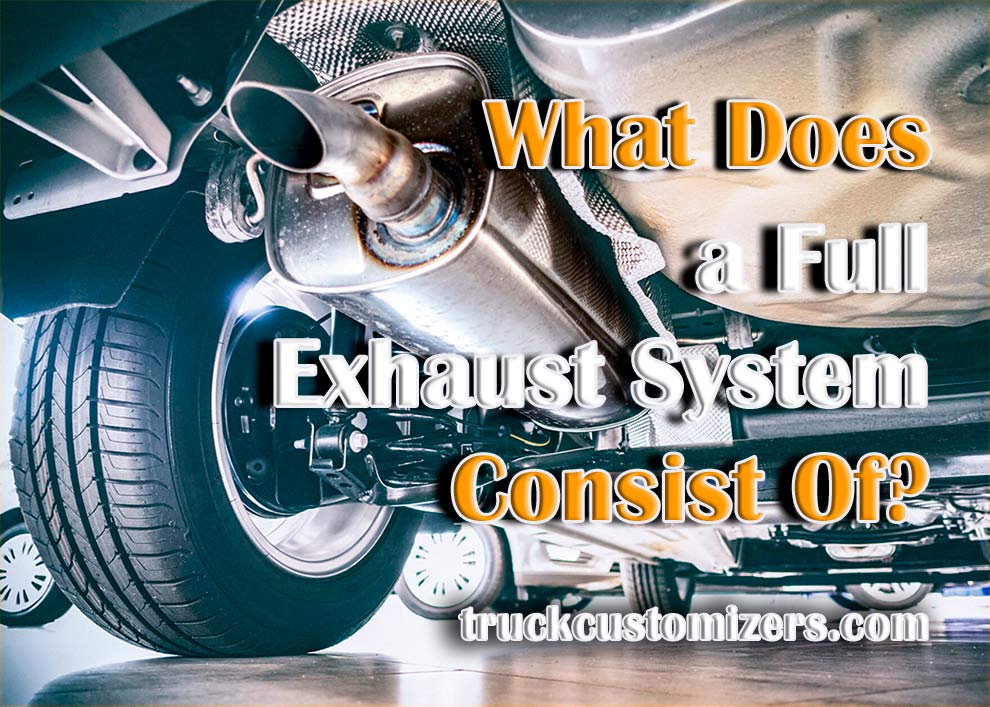Mufflers are an essential part of every car’s exhaust system, as they help to reduce exhaust noise and reduce emissions. Mufflers come in a variety of different types and sizes, which can make it difficult to determine the best type for your car. This guide will provide an overview of the most common types of mufflers and their advantages and disadvantages.
OEM Muffler Types
The two most common types of mufflers found in Original Equipment Manufacturer (OEM) vehicles are Glasspacks and Resonator Mufflers.
Glasspacks: Glasspacks are one of the most widely used muffler types due to their affordability and easy installation process. They consist of a cylindrical chamber with a single-chamber design that allows sound waves to bounce off the walls, thus reducing exhaust noise levels significantly. However, due to their single-chamber design, they can also limit airflow which can reduce engine performance over time.

Resonator Mufflers: Resonator mufflers are typically more expensive than glasspacks but offer superior noise reduction capabilities due to their two-chamber design. The outer chamber reflects sound waves while the inner chamber absorbs them, resulting in an overall reduction of exhaust noise levels. However, due to their two-chamber design they can also create backpressure which can reduce engine performance. See here Sounding Muffler for 4 Cylinder.
Aftermarket Muffler Types
The three most common types of aftermarket mufflers are Chambered Mufflers, Straight-Through Design and Turbo-style/Reverse Flow Design.
Chambered Mufflers: Chambered mufflers are similar to glasspacks as they both feature a single chamber design. However, chambered mufflers have a series of baffles and sound absorption materials that help to further reduce exhaust noise levels. They also offer improved engine performance over glasspacks due to their larger chamber size and better airflow capabilities.
Straight-Through Design: Straight-through muffler designs feature a perforated tube in the center with packing material around it for added sound absorption. This type of design allows for maximum airflow with minimal backpressure, which results in improved engine performance over other muffler types. Additionally, these designs help reduce exhaust noise levels significantly as well.

Turbo-style/Reverse Flow Design: Turbo-style or reverse flow mufflers feature a design similar to straight-through mufflers, but with the exhaust gases flowing in the opposite direction. This design helps reduce exhaust noise levels and improves engine performance significantly. These types of mufflers are typically more expensive than other types due to their complex design.
| Type | Advantages | Disadvantages |
| Glasspacks | – Low cost;
– Easy installation |
– Can limit airflow over time;
– Low noise reduction |
| Resonator Mufflers | – Superior noise reduction | Backpressure can reduce engine performance over time |
| Chambered Mufflers | – Improved sound absorption and engine performance | – More expensive than glasspacks;
– Single chamber design can still limit airflow |
| Straight-Through Design | – Maximum airflow with minimal backpressure | – More expensive than other types;
– Not as much sound absorption as chambered mufflers |
| Turbo-style/Reverse Flow Design | – Best sound absorption and improved engine performance | – Expensive due to complex design |
Advantages & Disadvantages for Each Type
When choosing a muffler type for your car it is important to consider both the advantages and disadvantages of each type. Glasspacks are a good option for those who want an affordable and easy-to-install option, but may not be ideal for those looking for maximum noise reduction. Resonator mufflers offer superior noise reduction but can create backpressure which can reduce engine performance over time.
Chambered mufflers (like for example Mufflers for Ford F150) are a good choice for those who want improved sound absorption without sacrificing too much engine performance, but they are typically more expensive than glasspacks. Straight-through design mufflers offer the best airflow with minimal backpressure, but may not provide as much sound absorption as chambered mufflers. Turbo-style or reverse flow designs provide the best sound absorption and engine performance but are typically very expensive due to their complex design.
Conclusion
Muffler types vary in both cost and capabilities, so it is important to consider your specific needs when selecting one for your car. OEM muffler types such as glasspacks and resonator mufflers are affordable and easy to install, while aftermarket options such as chambered, straight-through and turbo-style/reverse flow designs offer improved sound absorption and engine performance at a higher cost. Ultimately, it is up to you to determine which type of muffler is right for your car.



